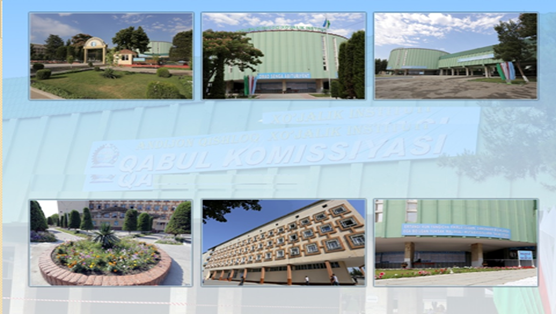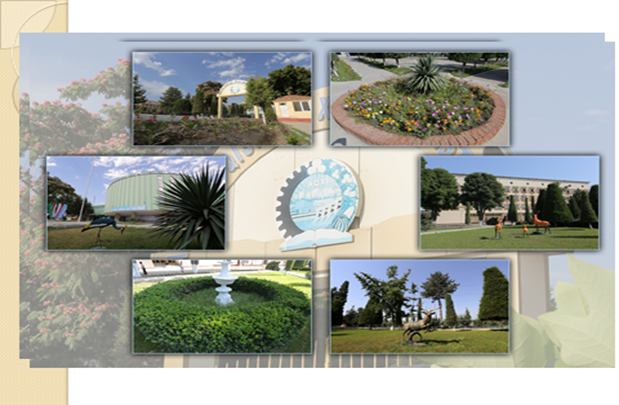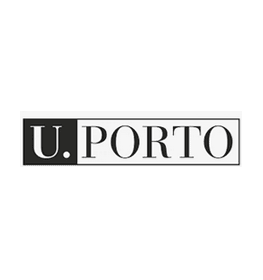
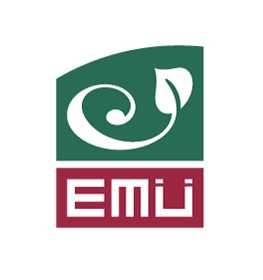
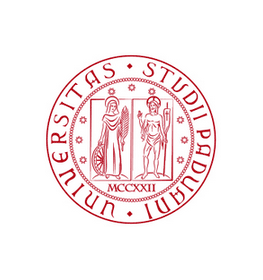
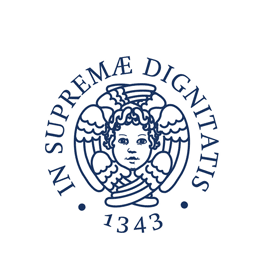
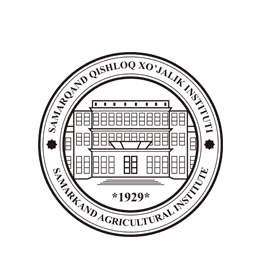
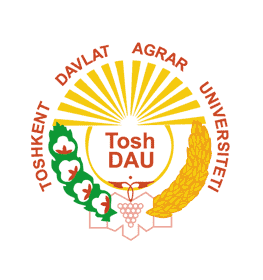
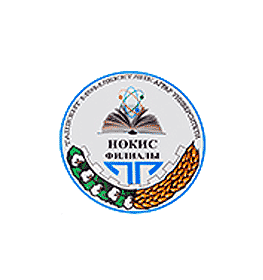
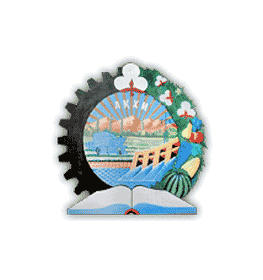
Founded in 1911, U.PORTO is today one of the largest higher education and research institutions in Portugal with 31. 309 students (19% international, including mobility), and one of the top 200 European Universities according to the most relevant international ranking systems.
The U.Porto combines high quality education focused on individual vocations and talents as well as market needs with the claim to being the greatest birthplace of science in Portugal. It is committed to converting into social assets the talent and innovation from its 14 faculties, one business school and over 50 research centres. The U.Porto has the richest academic community in Portugal and brings together the country’s highest ranked students, a highly qualified scientific and teaching staff and a growing number of international students, teachers and researchers. Its fully equipped campus embedded within the city guarantees an optimal academic, scientific, and also social and cultural experience.
Being open to the community and business is the main trademark of the U.Porto. The University is itself an important driving force for economic, social, cultural and scientific development in Northern Portugal and in the country as a whole. The U.Porto creates leaders, promotes innovators and encourages entrepreneurs. In short, it trains people who can make a difference in their communities.
Currently, the U.Porto is the most international of Portugal’s universities thanks to its active cooperation with hundreds of higher education institutions worldwide. The ambition now is to establish the U.Porto as one of the top 100 universities in the world by 2020.
The Biomedical Sciences Institute Abel Salazar (ICBAS) of UPORTO provides higher education and scientific research in Human and Veterinary Medicine, Bioengineering, Aquatic Sciences and Biochemistry. The Veterinary Integrated Master of ICBAS has 10 semesters of formal teaching and 1 semester of a practical training. Part of the practical teaching of large animal clinics takes place in Vairão Agrarian Complex with a mobile clinic. The degree aims to graduate students in veterinary activities such as clinics, public health, animal production, technological processing, food inspection, environmental and sanitary control, teaching and research.
https://sigarra.up.pt/up/en/WEB_BASE.GERA_PAGINA?p_pagina=home
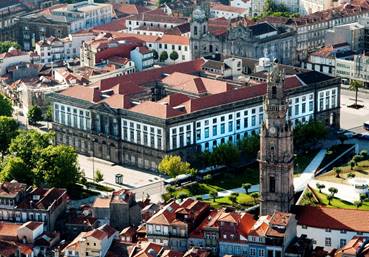
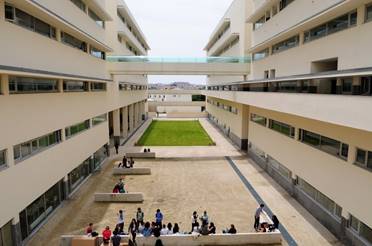
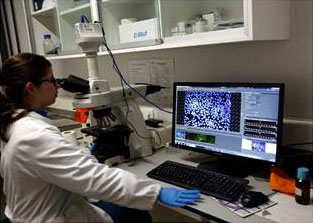
Estonian University of Life Sciences (EMU) is a public university, established in 1951. It is the centre of research and development in the fields of agriculture, forestry, animal science, veterinary science, rural life and economy, food science and environmentally-friendly technologies in Estonia. According to QS World University Rankings by Subject (2016), EMU is one of top 100 universities in the world in the field of agriculture and forestry, ranked 51 to 100. EMU also belongs to the top 1% most cited research facilities in the world. In its development plan for 2025 EMÜ has defined its goal to become internationally recognized university in the field of bio-economy. Internationally competitive research and development work, which forms a basis for teaching at all levels of higher education, as well as activities promoting the development of the society in their areas of responsibility are the striving force of the University.
Currently, teaching and research are carried out in five institutes and one college:
- Institute of Agricultural and Environmental Sciences,
- Institute of Veterinary Medicine and Animal Sciences,
- Institute of Forestry and Rural Engineering,
- Institute of Technology,
- Institute of Economics and Social Sciences,
- Tartu Technology College.
In Spring semester 2018/2019 there are around 2700 students enrolled at the university, from which 9% are international degree students. Additionally, EMÜ receives about 130 exchange students each year. EMÜ employs 983 staff members (incl 443 academic staff members).
The University of Pisa, founded in 1343, is one of the oldest and most prestigious universities in Italy. Amongst its glories is Galileo Galilei, who was born and studied in Pisa, and became professor of Mathematics in 1589. The University also counts several Nobel Prize winners among its alumni, including Giosuè Carducci (Literature), Enrico Fermi (Physics), Carlo Rubbia (Physics), and two Fields medalists (Mathematics), Enrico Bombieri and Alessio Figalli. Today, the University of Pisa is a modern and prestigious centre of advanced teaching and research with 20 Departments that cover all the areas of knowledge. It offers 58 undergraduate courses (first cycle), 67 master’s degree courses (second cycle) and 8 single-cycle degree courses, all in the main fields of advanced professional knowledge and education. The University has 20 PhD courses; its educational offer also includes 47 specialization courses and 62 one-year master’s courses, including an MBA. Research and teaching coexist in all areas and at all levels.
The Department of Veterinary Sciences (former Faculty of Veterinary Medicine) covers the area of veterinary medicine, animal production and behavior Sciences.
The main venue of DVS was inaugurated in 1965 and is located in Pisa in Viale delle Piagge. The 1st In 2000 a second venue of the Department was inaugurated in San Piero a Grado, where the Veterinary Didactic Hospital (VDH) represents an important teaching facility for the student. The University plans to transfer the entire DVS to the San Piero site, with the aim to set up a veterinary Campus that will host both research and educational activities. Moreover, in San Piero students and researches of the DVS can use the structures of the Agro-environmental Research Center E. Avanzi, with a modern dairy farm, other zootechnical activities and plant productions.
DVS organizes teaching, research, training and technological transfer in a multidisciplinary logic, with an active envolvement of the territory DVS provides two bachelor degrees (3 years), one Master Degree (2 years), one Long Cycle Degree (5 years), one PhD Program and 3 Post Master degree specialization schools (3 years).
The long Cycle Degree in Veterinary Medicine has gained accreditation with EAEVE (European Association of Establishments of Veterinary Education), the body appointed by the European Commission to maintain community-wide quality of veterinary training.
Samarkand Agricultural Institute – in nowadays Samarkand Institute of Veterinary Medicine is one of the oldest institutes, preparing specialists for agricultural sector in Central Asia. An according by regulation # 3703, at 8.05.2018 President of Uzbekistan Samarkand Agricultural institute reorganized to Samarkand Institute of Veterinary Medicine and became a unique higher educational institution focusing on livestock and veterinary areas.
There are six faculties, where students are involved to study agronomy; biotechnology, processing of animal and crop products, feedstuff production, silk-worm breeding; agricultural economics, farm management; accounting and auditing, agro-engineering, veterinary medicine, zoo-engineering, karakul-sheep-breeding technology, food safety, veterinary sanitization inspection, veterinary prophylactics and treatment, etc.
The Institute has established international relationships with more than 50 higher educational institutions of the world, foreign embassies, and other organizations. Currently the Institute is participating at the 5 CBHE projects(as SPHERA, ACADEMICA, PAWER, MIND, TOPAS, BUZNET) and 6 Credit mobility projects in the framework of Erasmus + KA 1.
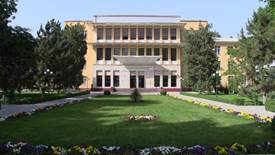
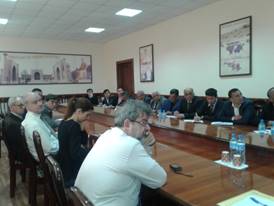
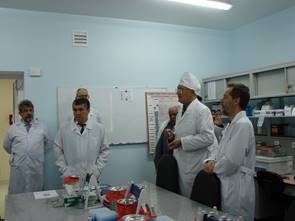
Tashkent State Agrarian University (TSAU) was founded on the base of agricultural faculty of Middle Asian State University in may 1930. From April 1991 it got a status of the Tashkent State Agrarian University as a first public agriculture university in Central Asia.
TSAU includes 7 faculties (Agricultural management, Agronomy, Selection, seed breeding and plant protection, Animal husbandry, Mechanization of agriculture, Horticulture and viticulture and Forestry and Environment. At present TSAU have over 6500 students and 470 academic staff and researchers.
TSAU offers 19 undergraduate program, 26 graduate program and 25 PhD programmes. It is the state institution of higher education and research in Uzbekistan awarding the diplomas and degrees at MSc and BSc levels in the fields of Plant growing, Horticulture and viticulture, Organization of storage, keeping and processing of agriculture production, Genetics, selection and seed breeding of agricultural crops, Plant protection, Agro chemistry and soil science, Agricultural biotechnology and physiopathology, Forestry and ecology, Agricultural Biotechnology and physiopathology, live stock breeding, Silk-warm breeding, Veterinary, Economics of agriculture, Book-keeping and audit, Marketing, standardization and certification of agriculture production, Farm management.
As educational and methodological center for agricultural universities of Uzbekistan TSAU has made a major contribution to the development of education standards, model curricula, model training modules, improving "Classification of areas and specialties of higher education".
After declaration of an independence of the Uzbekistan in 1991 year, coming of necessity of increasing an attention on development of agriculture sphere of national economy accordance of the decree of the President of Uzbekistan it was established Andijan agricultural institute (AAI) on 28 February of 1992.
0n 8 May of 2018 had been declared President Order № 3704 AAI had been transformed into branch of the Tashkent State Agrarian University (TSAU).
- Andijan branch of TSAU preparing modern specialists for agriculture sphere of economy on 17 directions of a Bachelor’s degree and 6 specialties of a Master’s degree nowadays.
- There are 3 faculties and 19 departments in AFTSAU at present times.
- Total number of the students’ counts 4000 and professor – teachers’ staff – 350 people.
- Andijan branch of TSAU nowadays is under process of reconstruction and during next 2,5 years there will be carried out modernization works on 58 billion Uzbek som.
After finishing reconstruction works Andijan branch of TSAU will have well equipped with up-date techniques research laboratories and experimental fields (50 ha) where didactic and research activities will be carried out by professor-teachers, master course and PhD course students. It is expecting to receive 9 new research laboratories for count budget allocations in 2019-2020 years. Main aim of the reconstruction is creating all necessary conditions for improving quality of high education and strengthening integration of the science-education and business.
AbTSAU administration had developed strategy of further development by means internationalisation education and research processes. Nowadays AbTSAU cooperate with universities of such countries as USA, Russia, Belarus, Bulgaria, Italy, Spain, France, Germany, England, South Korea, China and Kazakhstan. In 2019-2020 it is expecting opening double degree and double diploma bachelor level education direction with Belarus and Germany universities, double degree master courses with Bulgaria and Germany universities. Besides, AbTSAU closely cooperate with such international organizations as USAID, GZT, KOIKA, DAAD, British Council and etc.
In 2018 AbTSAU had begun educational cooperation with Porto university of Portugal in the framework of BuzNet project of the EU Erasmus Plus program. The cooperation with Porto University is opening new prosperities to AbTSAU from pint of view further integration to world high education network. Many teachers begun learning foreign languages, preparing joint research and educational projects, monographs, text books and curriculums. In the framework of BuzNet project it was planned new text books and curriculum for veterinary specialization of bachelor degree education, besides it will be established small laboratory for conducting practical lessons with using equipment purchased for BuzNet project money.
